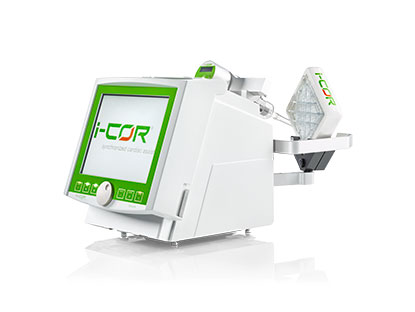
The first patient has been enrolled in the SynCor clinical trial of Xenios’ CE-marked i-cor synchronised cardiac assist system for treating cardiogenic shock.
The SynCor trial is a prospective, non-randomised, multi-centre, open-label observational study of the safety and performance of the i-cor System in 45 consecutively enrolled patients with cardiogenic shock or in high-risk percutaneous intervention procedures in the cardiac catheterisation lab.
The i-cor system is a small extracorporeal pump designed to synchronise to the heart beat, so that augmentation of cardiac output with well-oxygenated blood occurs during diastole. The i-cor system, which provides synchronised cardiac assist, is intended to combine elements of cardiac assist and augmented cardiac function associated with intra-aortic balloon pump and percutaneous ventricular assist devices, but should not increase left ventricular afterload or ventricular work.
Synchronised cardiac assist is intended to “overlay” or “superimpose” a physiological pulse wave onto the patient’s weakened pulse, and is designed to be a less-invasive treatment than the current standard, while using a more physiological treatment essential to endothelial function, which ensures adequate tissue perfusion in the organs. The oxygenating power of the i-cor synchronised cardiac system should allow for a reduction of invasiveness compared to standard care by reducing blood flow and thus reducing cannula size, according to a company press release. As a result, i-cor is designed to offer physiological circulatory support, protection, and safety during interventions in the cardiac catheterisation lab, as well as for the management of cardiogenic shock in the intensive care unit and the cardiac catheterisation lab.
“The i-cor synchronised cardiac assist device reduces the mechanical energy required by the heart to generate adequate blood pressure and blood flow to perfuse the tissues of each organ,” says Georg Matheis, managing directoy of Xenios. “The purpose of the SynCor trial is to study the safety and performance of the device, in order to optimise the performance of i-cor in the setting of cardiogenic shock following or associated with cardiac ischaemic events, as well as in the setting of high-risk percutaneous intervention procedures in the cardiac catheterisation lab. We look forward to reporting the results of this study.”









